
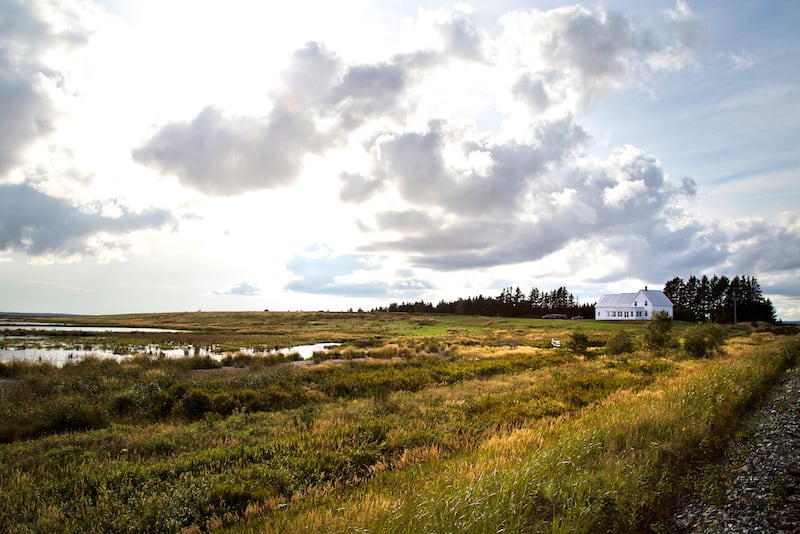
A place of history, to imagine our future
Welcome to this gathering place
Located at the crossroads of the three Maritime provinces, the Beaubassin Research Station focuses on social, cultural and environmental research – critical to understanding our past, present and to defining our future.
Beaubassin is located in Mi’kma’ki, the ancestral and unceded territory of the Mi’kmaq nation.
The Beaubassin Research Station was established in 2009 through the partnership of Irving Oil, Acadia University and Ducks Unlimited Canada. Developed in the spirit of collaboration, the three founding partners recognized the potential of the Beaubassin site to advance important environmental and historical research in the Atlantic region. At Beaubassin, students and researchers across a network of partnering academic institutions focus on finding practical solutions for a more sustainable future.
Welcome to Beaubassin, a special place of historical and cultural significance, a place to share knowledge and deepen our connections with one another and the natural environment that surrounds us.
When we first envisioned Beaubassin we imagined a meeting place – focused on connection, learning and meaningful research.
We are thankful to all those who helped to make this place possible – Geoff Harding with Ducks Unlimited, and John Waugh – there are many others who worked hard to make it all happen.
Today, we are proud this vision is realized in the work that you are doing – in finding solutions for a better tomorrow.
Our hope is that here at Beaubassin you will learn from one another, challenge yourselves, and build meaningful connections and lasting friendships. We hope that you will be inspired to continue to make positive change in the world and that you’ll return often to share that knowledge with others.
Thank you for being here.
Arthur and Sandra Irving
History of the Beaubassin Area
Prior to the arrival of the European settlers, the Tantramar marshes were the largest tidal salt marshes on the northeastern seaboard. The area was the site of an early Mi’kmaq settlement, Goesomaligeg, on the Fort Beauséjour Ridge. The Mi’kmaq acted as guides and aides to the first French explorers and generously shared their local knowledge of the geography, environment, and the medicinal uses of native plants, helping many early Europeans.
The early Acadian settlement was named Beaubassin and became the “Capital of Acadia” in 1676 with the first Governor of Acadia establishing his residence on Isle de la Valliere/Tonge’s Island, the current location of the restored farmhouse for the Beaubassin Research Centre. The Acadians transformed the landscape through dyke construction to improve agricultural prospects. A conflict between the Acadians and British erupted which lead to the deportation of Acadians in 1755.
The site was designated a National Historic Site by the Government of Canada in 1920.
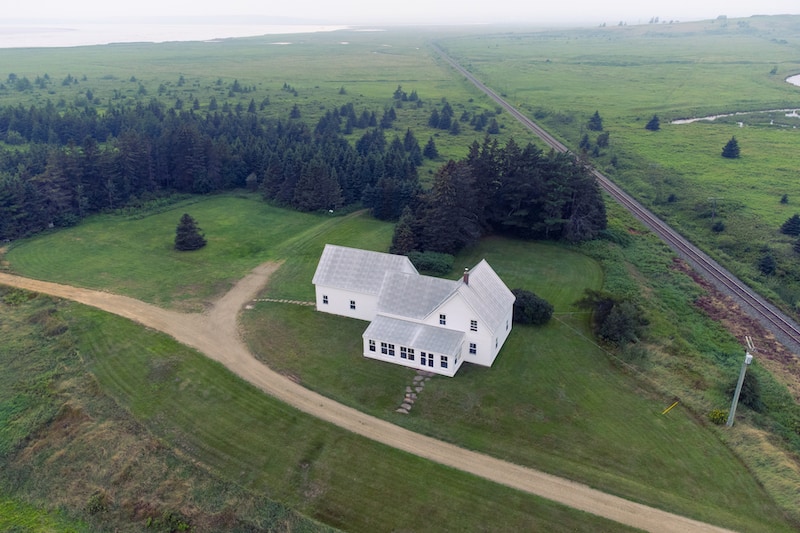
Arthur Irving, Chairman of Irving Oil, together with Duck’s Unlimited, saw the Tonge’s Island farmhouse as an opportunity to create a meeting place dedicated to meaningful historical, cultural and environmental research.
As the owner of the land for many years, Irving Oil, together with founding partners Ducks Unlimited and Acadia University, began to transform the place to what it is today.
The farmhouse, built in 1862, was completely renovated and a new field laboratory facility and additional sleeping quarters were added in 2009. All construction costs for the Beaubassin Research Station were generously sponsored by Arthur Irving and Irving Oil.
World Class Interdisciplinary Research
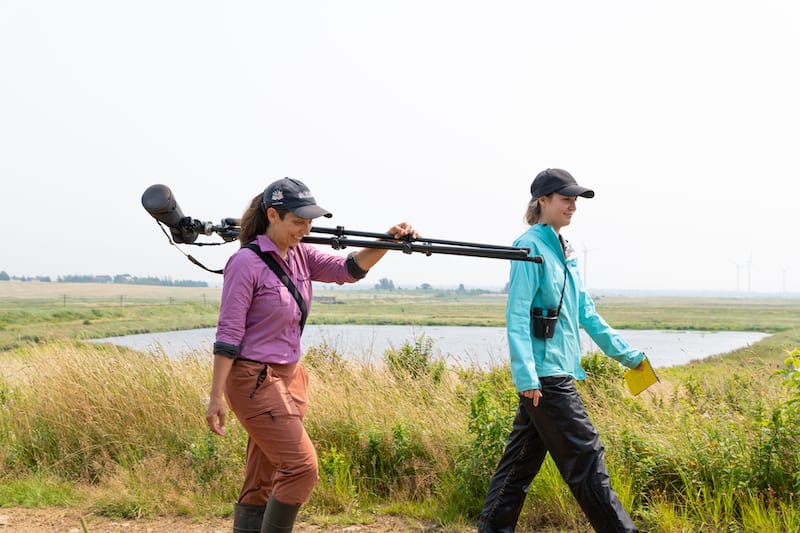
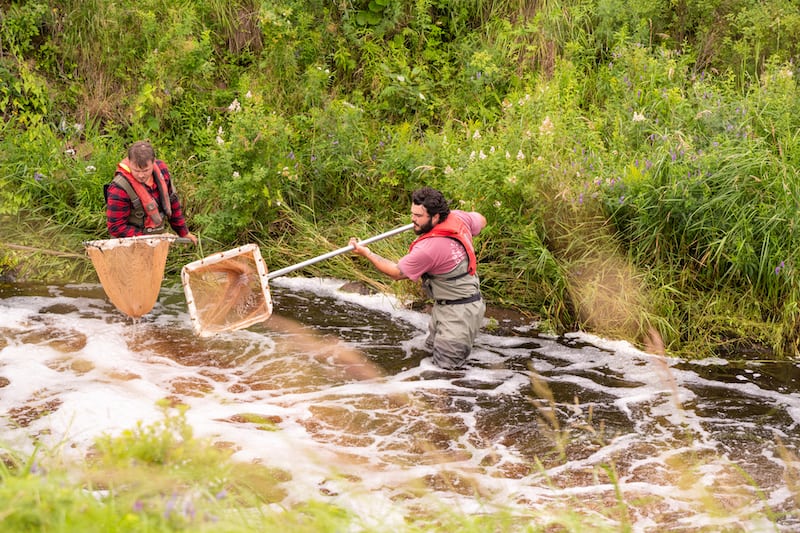
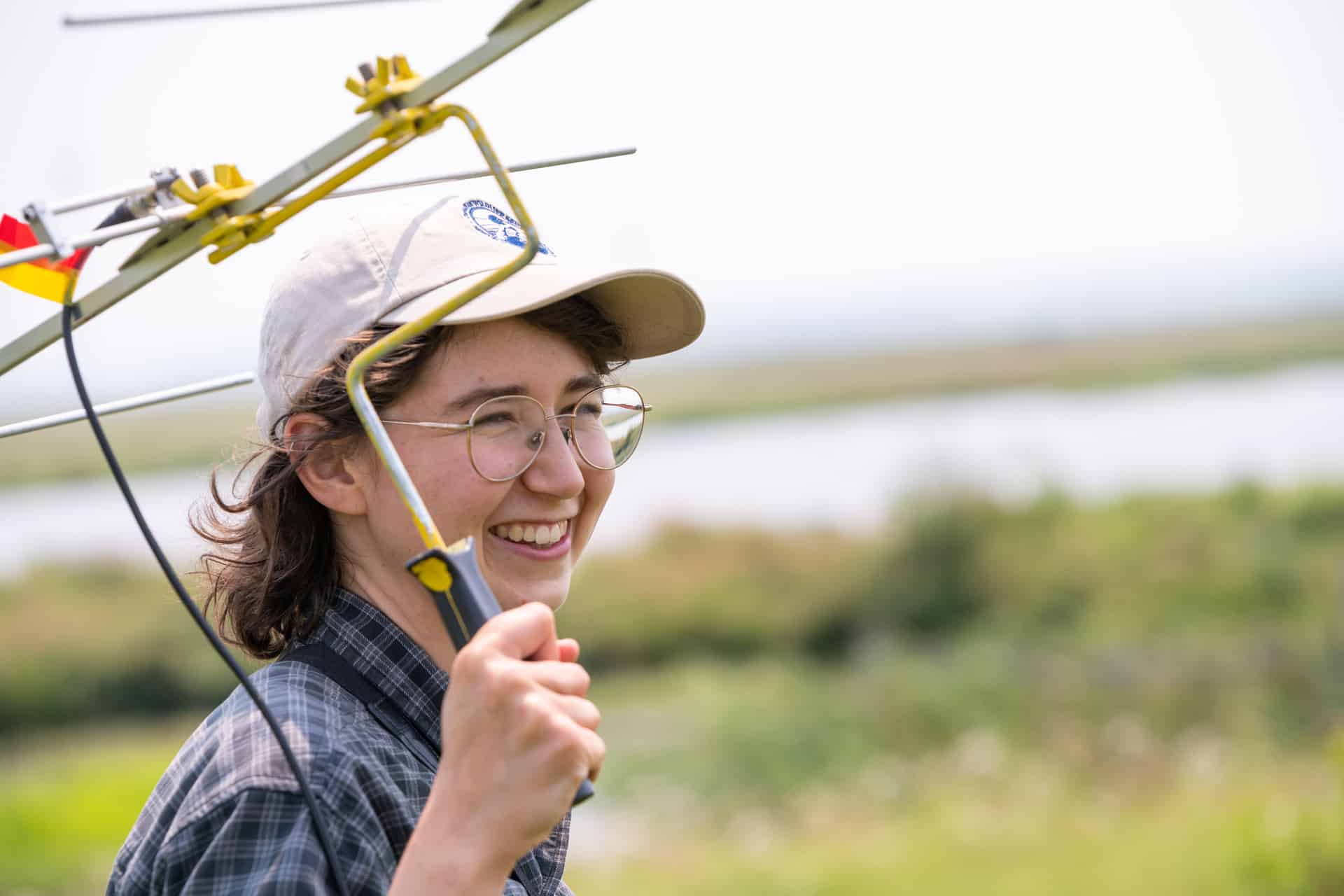
Focused on historical, cultural and environmental research, Beaubassin has a transformational impact on student education.
Multi disciplinary research today focuses on:
- Environmental impact – The dynamic tidal environment supports the study of coastal erosion, sedimentation and sea level rise.
- Wildlife habitat – Situated on marshlands at the head of the Bay of Fundy, it is an ideal place to study migratory birds.
- Climate change – Understanding the impact of wetlands as a nature based carbon solution
- Aquatic ecosystems – The interface between seawater and freshwater offers an abundance of opportunity to study fish movement, populations and species richness.
- Historical and cultural significance – With its significant role in history, it is a unique place to study culture, community, language and archaeology.
The Beaubassin site boasts over 1000 acres of coastal marshland and 240 acres of freshwater wetland. Since its opening in 2009, over 75 students have worked on-site and many more have visited in various educational and volunteer capacities.

In Fall 2021, the Beaubassin partnership was pleased to welcome the Université de Moncton, engaging students in historical and cultural research of the land and its people.
Student Stories
Beaubassin naturally promotes a collaborative environment and student researchers from a variety of institutions have benefitted from this space, including: University of New Brunswick, Université de Moncton, Mount Allison University, St. Francis Xavier University and Bird Studies Canada.
Beaubassin allowed our research to continue relatively untouched during COVID-19. We bubbled as a lab group to live at the Beaubassin Field House and we were able to gather nearly a regular season worth of fish passage data!
Cam Solda, MSc Biology Candidate, Acadia University
Beaubassin is an amazing setting to do research as you’re surrounded by wetlands and dykelands. One of the Nelson Sparrows we’re tracking can be found right outside our door!
Kiirsti Owen, PhD Candidate, University of New Brunswick & Acadia University


 Acadia University
Acadia University